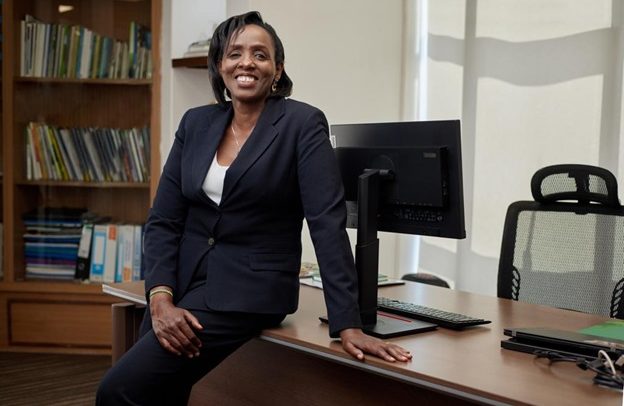Dr. Agnes Kalibata
AGRA President, Dr. Agnes Kalibata, has emphasised the need to address challenges as a community in the wake of Africa Food Systems Forum (AGRF) 2023 which started yesterday, September 5, 2023 in Dar es Salaam, Tanzania.
The conference which will end on September 8, 2023, brings together over 4,000 delegates from around the world to discuss challenges around food systems. It is being held amid the biting impact of COVID-19, Russia-Ukraine war, and climate change.
“There is no single country or group of population that is going to solve these problems alone. It’s only by coming together as a community to talk and discuss these challenges, discuss what we are doing right and what we are doing wrong and explore the opportunities sitting in our midst that we will be able to solve the problems,” said Dr. Kalibata while commenting about the annual summit taking place at Julius Nyerere International Convention Centre.
Over 30 government ministers, members of the private sector as well as the farming community are attending the four-day conference.
“This (forum) is building on the potential of a community that has come together to have some candid and difficult conversations that must be had and be able to address some of the challenges,” she said, adding that the forum is an opportunity for dialogue among different groups of people.
This year, AGRF focuses on youth and women who play an important role in ensuring food production and sustainability.
“This focus is recognizing that inclusion is one of the most important things that we must focus on because starting from COVID-19 to the Russia-Ukraine war and the resulting cost of living crisis, we see that the impact is largely on inclusion and exclusion. We see that people don’t have the same ability to access the same nutrition as they were accessing before. With the same amount of money, you access so much less food and that is impacting people,” Dr Kalibata said.
“This is an opportunity for the participants to discuss what we can do, what we can learn from each other and how we can build a community of learning from each other so that what is happening in our countries is really borrowing from what others are doing and be able to support each other,” she added.
The conference is expected to provide a platform for forging agreements in the fields of agriculture, climate change and trade all within the context of food systems.
“Transformation does not come from conferences like this. It comes from us being prepared once we have had these major conferences to put resources on the table,” said Dr. Kalibata.
“For instance, this week, we expect here in Tanzania to have a major programme around mobilizing partners and resources that could be transformative in this country. It will start with the government of Tanzania itself and its partners putting resources on the table and such type of programmes will reach the farmers,” she said.
Dr. Kalibata also touched on how the conference will impact smallholder farmers and other communities, saying they should not feel isolated.
“It’s the whole idea of managing the challenges of climate change and the cost-of-living crisis that are impacting farmers and individuals in general, that come from agreements from meetings like this that will impact them. So, I would say that to farmers and communities that are out there, we are here to listen and be part of the conversation that can start solving some of the challenges we work with every day,” she said.
“Our job right here in this conference is to make sure that these challenges are becoming continental and global, especially the challenge of climate change. Everybody must appreciate that African farmers are suffering from climate change, and they are not responsible for climate change,” she added.
A Business Desk Report


